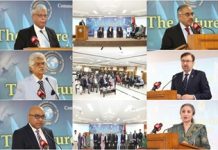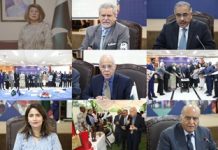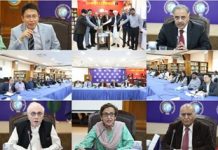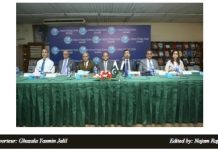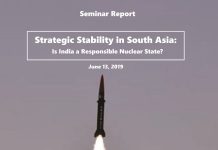Pakistan and the Nuclear Security Summit*
Rizwana Abbasi **
Assistant Professor, NDU, Islamabad
President Barack Obama announced the Nuclear Security Summit (NSS) framework in 2009 to strengthen his political legacy in the wake of increased global trends in terrorism. Through this platform, Obama pioneered the tradition of sustained, voluntary nuclear security commitment by states, creating a useful tool for reinforcing the global nuclear security regime and states’ national security cultures. The aim was to secure undeclared nuclear material, break-up global black markets, detect illicit trafficked material, increase security of fissile material, improve nuclear security and training centers, and ratify international agreements that govern nuclear security. The preceding three summits at Washington, Seoul, and The Hague have recorded significant successes in these endeavors, with Pakistan being an important partner in the process.
What has the NSS process achieved?
Completion of the NSS cycle in itself is a significant achievement for President Obama, having gotten 52 countries and the European Union on a single platform to discuss this pressing issue. The NSS process has helped generate awareness at the global level about nuclear security, and enabled high-level attention to be focused on it. The summits offered creative pathways for progress such as establishing domestic centers of excellence, initiating nuclear security education, and implementing training and capacity-building programs. More tangible success can be measured by the fact that the threat of nuclear materials falling into the wrong hands has been reduced, although not eliminated, with many states ratifying relevant nuclear security treaties such as the Amendment to the Convention on the Physical Protection of Nuclear Material (CPPNM/A). Additionally, during these six years, more than 1,500 kilograms of highly-enriched uranium (HEU) and separated plutonium have been recovered or eradicated, and twelve new countries have become HEU-free. Finally, many states have streamlined their national laws and regulations on nuclear safety and security in the wake of the Fukushima accident and political pressure from the NSS. Thus, the NSS process has generated support for strengthening domestic nuclear security, driving states to acknowledge that nuclear security is a national responsibility.
What has Pakistan achieved?
First, Pakistan has made progress on nuclear and radiological security by upgrading security measures at more than a dozen medical centers, and is implementing lessons learned from the Fukushima accident by upgrading physical protection at the Karachi nuclear power plant, currently underway.
Second, Pakistan aims to fully counter nuclear and radiological smuggling by participating in the International Atomic Energy Agency (IAEA)’s Incident and Trafficking Database (ITDB).
Third, it has introduced various education and training initiatives such as establishing the Pakistan Centre of Excellence on Nuclear Security (PCENS), opening a training academy for the Strategic Plans Division with courses on nuclear security, setting up the School for Nuclear and Radiation Safety, organizing IAEA workshops on nuclear security culture and regional training course on the security of radioactive sources, and training first responders at the Nuclear and Radiological Emergency Support Center and National Radiation Emergency Coordination.
Pakistan has also made progress on governance structures and processes. It continuously revises its national export control list, revisits its Nuclear Security Action Plan with the IAEA, and has also established a national Nuclear Emergency Management System.
Pakistan at NSS 2016
Pakistan’s ratification of the CPPNM/A shows that it has put in place the highest level of security, at par with the latest international standards. Such measures and its vigorous participation in the NSS process prove that it is an active player in this field.
Pakistan has a lot to offer. The PCENS can be a part of Pakistan’s gift basket, especially in the field of training and educational outreach. It can and should contribute to the IAEA’s Nuclear Security Fund—at least $1.5 million, if not more. Islamabad should not be reluctant in sharing information on its good work and experience that contributes to achieving NSS goals. It has worked consistently and immensely to reinforce a culture of nuclear security. However, sustained commitment on national action, reviving political momentum, and unrelenting international cooperation is needed after the summit process ends.
In terms of issues it would like to address, Pakistan may raise the question of mainstreaming its program via membership of the Nuclear Suppliers Group, in order to reach out to the global market. It may also reiterate its need for energy security.
Future of NSS
Since the NSS started with a voluntary spirit, the outcome would be legally non-binding commitments, or responsibility would go to the IAEA’s general conference to carry this process forward. There is little possibility of creating any dedicated institution or core group of states to govern international nuclear security, as most states consider nuclear security to be a solely domestic responsibility. Other institutions such as the United Nations Security Council can be tasked to sustain political momentum, by ensuring continuation via UNSC 1540, or the IAEA trafficking database might be tasked with this duty.
For its part, Pakistan must continue this interaction with the international community and its institutions, apart from independent efforts to improve its nuclear security. This is needed to bring best practices home and address the nuclear challenges of the future.
=============================================================================
*. The author presented this paper at the Roundtable held at the Institute of Strategic Studies, Islamabad on March 25, 2016. The paper has been published by South Asian Voices, March 31, 2016
**. Dr. Rizwana Abbasi is Assistant Professor at the National Defence University, Islamabad.




